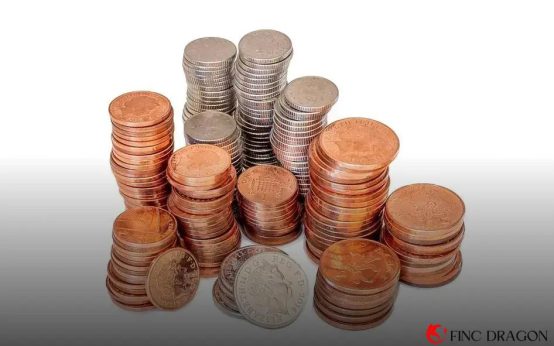Embracing minimalism can transform your finances by focusing on what truly matters. In this blog post, we explore how adopting a minimalist lifestyle can significantly reduce your spending. From understanding the core philosophy to practical tips on simplifying your life, learn how less truly becomes more. The minimalist approach not only cuts unnecessary costs but also brings clarity and happiness. Dive into the financial benefits minimalism offers and discover how it can help you save more money in the long run.
Understanding the Philosophy of Minimalism
Embracing minimalism involves focusing on living with intention and valuing experiences over material possessions. This philosophy encourages individuals to make considered decisions about what truly adds value to their lives. Minimalism can make everyday expenses more manageable by reducing the desire to purchase unnecessary items. By aligning expenditures with personal values, it helps you prioritize spending only on what truly matters.
Minimalism promotes a thoughtful approach to consumption that can lead to financial savings. By evaluating and understanding your true needs, you learn to distinguish between necessities and luxuries, which aids in budgeting and reducing wasteful spending. This way of thinking can significantly impact how you view your finances, encouraging a more sustainable and mindful economic lifestyle.
Furthermore, minimalism is about editing your life so that your time, energy, and resources are concentrated on what’s most important. It’s about being intentional with your purchases and choosing quality over quantity. This mindset reduces clutter and leads to a more organized home, which can also diminish stress and improve mental well-being.
By understanding the philosophy of minimalism, you become more aware of consumer habits and the role of materialism in our lives. This recognition paves the way for intentional living, where decisions are rooted in genuine need rather than outside influence, ultimately contributing to greater financial freedom and personal satisfaction.
Practical Ways to Simplify Your Lifestyle

Implementing minimalist principles in your daily life can significantly reduce unnecessary stress and promote a more harmonious lifestyle. Start by decluttering your living space. Remove items that you rarely use or that don’t contribute to your happiness. This not only creates a more peaceful environment but also prevents impulse purchases as you become more mindful of what truly adds value to your life.
Another practical way is to simplify your wardrobe. Choose a few versatile pieces that you love and that can be easily mixed and matched. This approach reduces decision fatigue and saves money by discouraging frequent clothing purchases.
Consider embracing digital minimalism by decluttering your digital spaces. Organize your files and unsubscribe from unnecessary emails. Reduce social media time to focus on activities that genuinely enrich your day.
Mindful consumption is key. Prioritize purchasing based on need rather than want. Evaluate every purchase by asking if it serves a purpose or aligns with your values. This mindset shift can prevent unnecessary spending, helping you save significantly.
Incorporate simple meal planning methods to streamline your eating habits. Plan meals around whole, fresh ingredients. This not only promotes health but also reduces food waste and grocery bills.
Adopt minimalism in your schedule to avoid burnout. Focus on essential tasks and allocate time for rest and hobbies. By simplifying commitments, you boost productivity and mental well-being.
Cutting Unnecessary Expenses with Minimalism
Identifying Unnecessary Expenses
Incorporating minimalism into your daily life begins with recognizing expenses that don’t add real value. Evaluate subscriptions, such as streaming services or gym memberships, that often go unused. Review your monthly bills and identify areas where costs can be reduced without impacting your lifestyle.
Adopting a Minimalist Shopping Habit
Minimalism encourages intentional buying. Instead of purchasing items on impulse, focus on what’s truly necessary. Create a list before shopping and stick to it. Consider whether an item brings joy or serves a purpose, which can prevent unnecessary expenditures.
Assessing Your Living Space
Your home often reflects your spending habits. Minimalism suggests decluttering as a means to recognize what you value. Reducing household items can lower maintenance costs and make you more mindful of future purchases. Sell or donate items you no longer need to free up space and possibly recoup some costs.
Reducing Consumption
Embrace practices such as meal prepping and cooking at home, which can drastically cut down on eating out expenses. Buying in bulk can also be more cost-effective. Apply minimalism to your wardrobe by investing in versatile, high-quality pieces instead of fast-fashion items that wear out quickly.
Streamlining Your Digital Life
Digital minimalism involves managing your online subscriptions and digital tools efficiently. Unsubscribe from unnecessary services and delete apps that distract rather than enhance productivity. Use digital devices to minimize waste, like opting for eBooks instead of physical copies, which can save money over time.
Finding Joy in Less: The Minimalist Mindset

Embracing a minimalist mindset can lead to increased happiness and a more fulfilling life. By focusing on what truly matters, you can eliminate the stress of clutter and financial burden. This approach encourages individuals to evaluate their possessions and expenses rigorously, keeping only those that bring genuine joy and utility.
Living minimally does not mean depriving oneself but rather curating a life where quality triumphs over quantity. This mindset shift allows for greater mental clarity and emotional wellbeing, as your environment becomes a reflection of your true priorities.
Moreover, minimalism can provide a sense of freedom, as possessions no longer define your worth or happiness.
Setting Up a New Mindset
To cultivate this attitude, start by questioning purchases: Is this essential? Will it add value?
Letting go of unnecessary items can be liberating and result in new appreciation for what you already have. An organized space often translates to a more organized mind, as well. By adopting minimalism, you can experience joy in the simplicity of life and find peace in the absence of excess.
Long Term Financial Benefits of Minimalism
Embracing minimalism can lead to significant financial benefits over the long term. By focusing on purchasing only what is truly necessary, individuals often find themselves saving substantial sums. Minimalism encourages mindful spending, which helps in cutting down on impulse buys and unnecessary expenses.
One of the main advantages of minimalism is that it teaches individuals to differentiate between wants and needs. This mindset shift often results in a decrease in consumer debt, as people learn to prioritize paying off debts over accumulating more possessions.
Moreover, minimalism can enhance your financial investments in assets that appreciate over time rather than depreciate. By spending less on material goods, many find they can invest more in experiences or savings accounts, leading to a stronger financial foundation.
Another long-term benefit of adopting a minimalist lifestyle is the reduction in maintenance costs. With fewer items to take care of, there are lower costs associated with repairs, replacements, and storage. This simplicity can lead to significant savings, both directly and indirectly, as your time and resources are freed up for other pursuits.
Emphasizing Quality Over Quantity
A minimalist approach encourages buying fewer, but higher-quality items, which can save money in the long run. Higher-quality items tend to last longer, thus reducing the need for frequent replacements.
Minimalism also aligns with sustainability, as it promotes using resources wisely and reduces waste. This environmental benefit can also translate into financial savings, as energy and consumption costs decrease.
Ultimately, by adopting minimalism, individuals often find that they gain financial peace of mind. With a clearer understanding of what is important and a focus on long-term goals, financial stability becomes more attainable.





